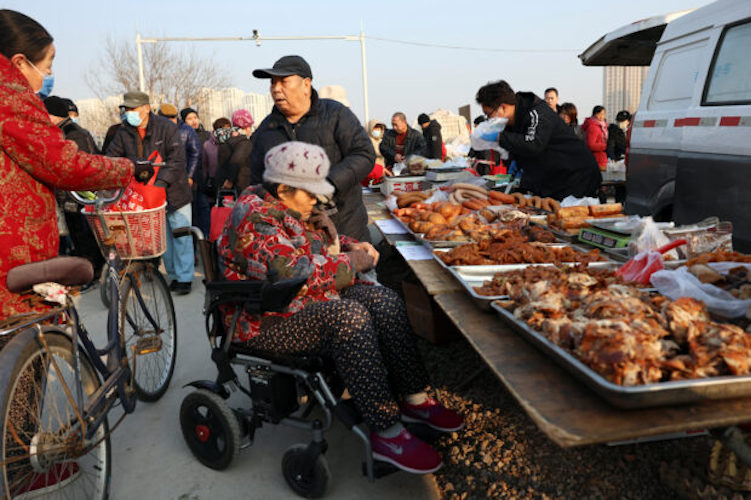The threat of persistent deflation is looming large in China after the country saw consumer prices drop by the most in more than 14 years in January.
Producer prices also dropped, as the world’s second-biggest economy struggles to regain momentum since Covid curbs were dropped in late 2022.
The consumer price index (CPI) fell 0.8% in January from a year earlier, after a 0.3% drop in December, data from the National Bureau of Statistics (NBS) showed on Thursday. The CPI rose 0.3% month-on-month from a 0.1% uptick the previous month.
ALSO SEE: China Appoints New Securities Regulator as Markets Flounder
Economists polled by Reuters had forecast a 0.5% fall year-on-year and a 0.4% gain month-on-month. The annual CPI decline in January was the biggest since September 2009.
The Chinese economy has started this year on a lower ebb, with an official survey showing factory activity contracting in January as confidence remains weak amid a prolonged property downturn, major local government debt risks and soft global demand.
‘Strong action needed’
“The CPI data today shows China faces persistent deflationary pressure,” Zhiwei Zhang, chief economist at Pinpoint Asset Management said.
“China needs to take actions quickly and aggressively to avoid the risk of deflationary expectation to be entrenched among consumers.”
China has been grappling with slowing prices since early last year, which has forced policymakers to cut interest rates to spur growth even as many developed economies were focused on taming stubbornly high inflation.
The economy grew 5.2% in 2023, meeting the official target of around 5%, but the recovery has been shakier than investors had expected. Policy insiders expect Beijing to maintain a growth target similar to last year of around 5%.
China’s central bank in late January announced the deepest cut to bank reserves in two years, sending a strong signal of support for the fragile economy but analysts say policymakers need to do more to lift confidence and demand.
Core inflation, which strips out volatile food and energy prices, gained 0.4% from a year earlier, down from a 0.6% gain in December.
CPI rose 0.2% last year, missing the official target of around 3%, marking the actual inflation undershot annual targets for the 12 straight year.
Citigroup economists said in a research note last week that they expect mild reflation in 2024, and forecast annual CPI inflation at 1.2% year-on-year.
“The cyclical drivers for CPI could turn around in 2024, while the strength of its reflation would hinge on the return of consumer confidence.”
The producer price index (PPI) slid 2.5% from a year earlier in January after a 2.7% fall the previous month, compared with a 2.6% slide forecast in the Reuters poll.
Factory-gate prices were down 0.2% from a month earlier, after falling 0.3% in December.
Prolonged factory deflation is threatening the survival of smaller Chinese exporters who are locked in relentless price wars for shrinking business.
- Reuters with additional editing by Jim Pollard
ALSO SEE:
China’s Small Exporters Being Crushed by Falling Prices
China’s Manufacturing Declines in January, Amid Weak Demand
China’s Deflation And Weak Economy Point to Another Bumpy Year
Will Evergrande Really be Liquidated? Not if China Says No
China Real Estate Funds Crash as Economic Gloom Persists
China Consumer Prices Fall Fastest in 3 Years, Alarming Beijing
























